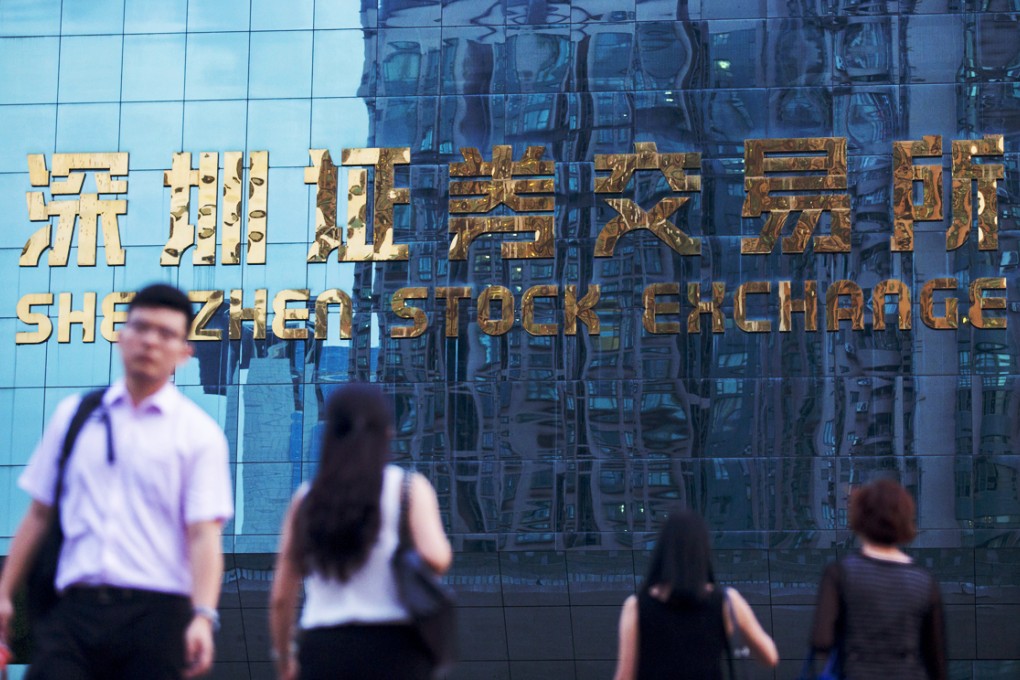Shenzhen-Hong Kong stock connect could see muted response
High valuations and vague corporate governance standards look set to dampen foreign institutional investor interest in mainland shares

Foreign institutional investors may be apprehensive about picking up China's high-growth shares in the Shenzhen-Hong Kong stock trading scheme, given high valuations and vague corporate governance standards.
Shenzhen Stock Exchange general manager Song Liping announced that shares on the country's ChiNext board were likely to be included in the trading link with the Hong Kong board, which is expected to kick off in the second half of this year.
"The valuations of many stocks on ChiNext have risen to up to 100 times price-earnings, driven by speculators, [and] we see substantial risks," said Kathy Xu, a fund manager at Aberdeen International, which helps manage US$6.2 billion worth of assets in a China-related portfolio.
The quota-based trading link is a natural expansion of the Shanghai-Hong Kong Stock Connect, which was launched in November last year, but expectations have been building that some improvements should be made to encourage more users, especially institutional investors, to use the scheme.
The average volume of the Shanghai-Hong Kong trading link has been weak since its launch.
In the four months to the end of last month, the northbound trade volume averaged 5.2 billion yuan a day, accounting for just 40 per cent of the permitted quota.